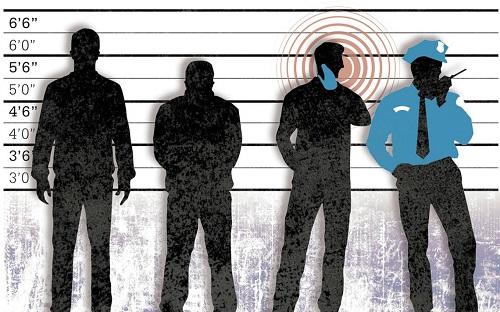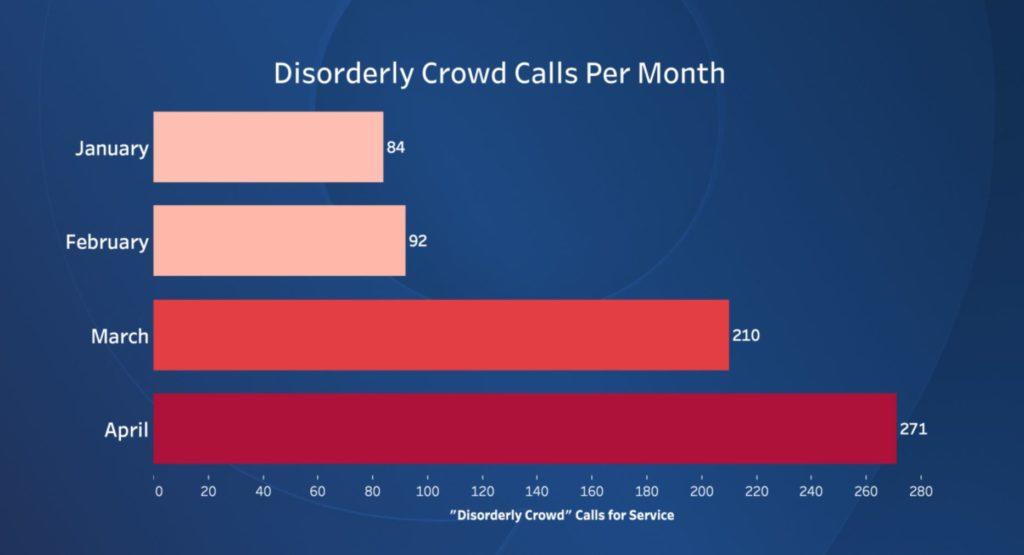Nextdoor Helps Spread Neighborhood Snitching By Showering Law Enforcement With Gifts
Tyler Durden
Wed, 05/27/2020 – 12:00
Community platform Nextdoor is going to great lengths to become the go-to app to snitch on your neighbors.
According to a CityLab article, Nextdoor is showering law enforcement with all-expenses paid vacations to their headquarters in San Francisco, California all in an effort to gain law enforcement acceptance and put police on Public Agency Advisory Councils.
Charles Husted, the chief of police in Sedona, Arizona, couldn’t contain his excitement. He had just been accepted into the Public Agencies Advisory Council for Nextdoor, the neighborhood social networking app.
At a time when most Americans are concerned with just surviving the COVID-19 pandemic, Nextdoor views it as an opportunity to influence law enforcement and local politics.
As part of the chosen group, he would be flown to San Francisco on President’s Day, along with seven other community engagement staffers from police departments and city offices across the country. Over two days, they’d meet at Nextdoor’s headquarters to discuss the social network’s public agency strategy. Together, the plan was, they’d stay at the Hilton Union Square, eat and drink at Cultivar, share a tour of Chinatown, and receive matching Uniqlo jackets. All costs — a projected $16,900 for the group, according to a schedule sent to participants — were covered by Nextdoor.
Exactly what Nextdoor includes in their law enforcement paid vacations is protected by a corporate non-disclosure agreement. But you can be sure it isn’t just a trip to their headquarters.
Nextdoor’s excuse for influencing law enforcement and advisory councils is to allegedly “help [public agency] partners to share their expertise and experiences with each other and our product development team.”
If you look past Nextdoor’s lame excuse to shower law enforcement with gifts, you see the real reason behind what they are doing.
Since the Covid-19 crisis began in the U.S. at the beginning of March, Nextdoor says the volume of posts by public agencies has tripled. Along with his daily press conferences, New York Governor Andrew Cuomo has been posting occasionally on the site as part of Nextdoor’s new partnership with the National Governors Association.
The article goes on to say that Nextdoor’s plan is to shamelessly follow in Amazon Ring’s footsteps by cozing up to law enforcement and influencing government officials. Nextdoors goal is “to earn the trust of more public agencies, and to eventually pitch a paid version of the app.”
The real reason Nextdoor is schmoozing with law enforcement and influencing advisory councils is to make them more profitable than the $2.1 billion dollars they are currently worth.
As Slate revealed, Nextdoor is more than happy Americans are using their platform to snitch on each other for not social distancing.
“If there are kids outside, getting more than adequate exercise time, and basically goofing around,” a concerned Nextdoor user in Cherry Hill Village, Michigan, asked in a recent post on the hyperlocal social network, “is there something that can be done?”
Social distancing complaints on the rise during pandemic
credit-WCPO9
A recent WCPO 9 article revealed that since the COVID-19 outbreak, social distancing complaints on Nextdoor and to the police have skyrocketed.
“I wish I could say everything was warm and fuzzy, but that would be lying,” Jenn Takahashi, the proprietor of the Twitter account @BestofNextdoor said. It’s not so much that people are being better or worse than usual; it’s more that human nature is to judge and police others, and so this persists even—especially?—in times of crisis.
The Chicago Tribune reports that neighbors are using Nextdoor to snitch on each other “with a sense of duty.” Rewire.org said, the snitch or “call-out culture is based in rage and there is no empathy involved.”
The article further explained that neighbors attempted to justify snitching on each other by saying they are the call-in culture.
“Calling-in is when you express concern about what someone is saying but you do it in as respectful a fashion as you can,” activist Loretta Tomes said.
It does not matter what people refer to it by. Snitching, calling out your neighbor or calling-in only sows distrust in our communities, while Big Tech worries about who will become the next multi-billion dollar company.
Finding a cure for COVID-19 should not be entrusted to Apple-Google, Amazon, Nextdoor, DoorDash, Clear Biometrics, or any other Big Tech corporations whose only interest lies in making their shareholders more money.

